Episode 44: Cross-Continental Journeys | Dr. Amana Mbise on Language, Migration, Health, Social Work
“The Critical Social Worker: A Revolutionary Storytelling Podcast”
- Revolutionizing Our Minds
- Elevating Our Consciousness
- Changing Our Worlds
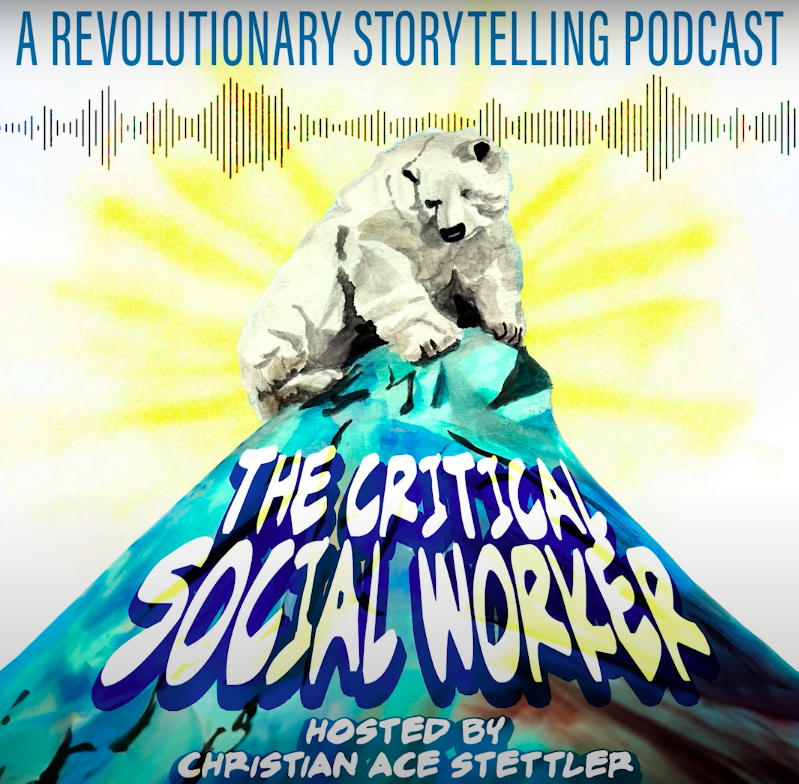
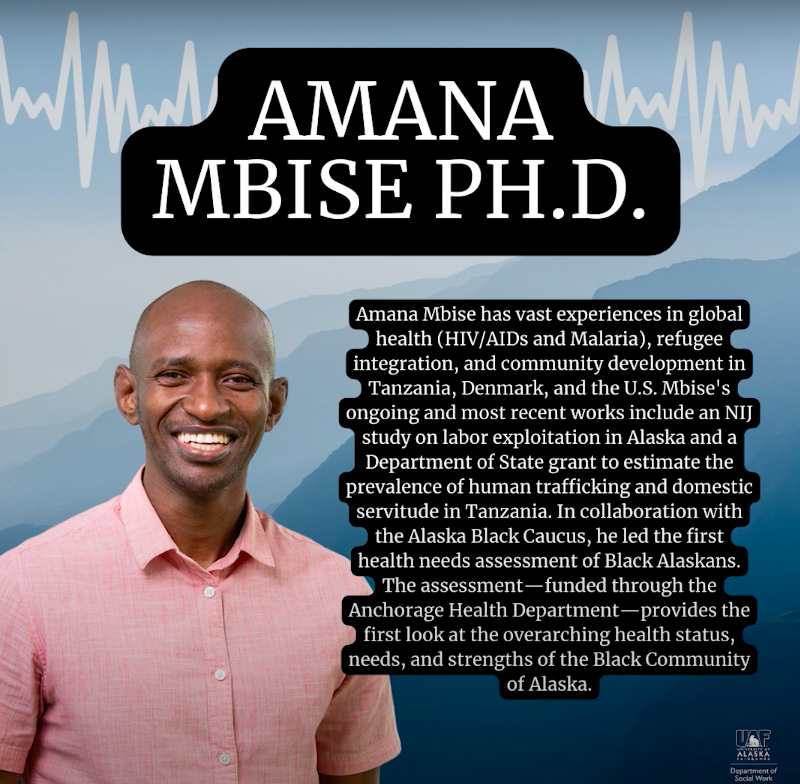
Episode 44 was mainly about Dr. Amana Mbise, and his journey of becoming and living as a revolutionary social worker.
He is originally from Tanzania, which is a country based in East Africa, and is one of eight children. He is now stationed as a professor at the University of Anchorage, Alaska.
Education
Dr. Mbise first went to school in his hometown of Tanzania. He completed his undergraduate degree at the University of Dara Salaam, which he got his degree in sociology. After some time in the field, he got to meet Professor Nathan Links, who was a professor at the University of Illinois. Professor Nathan was the eye opener for Dr. Mbise, and told him “You’re actually really good as a Social Worker.” And then Dr. Mbise went onto to finish his Master’s degree in 2012, at the Jane Adams College of Social Work.
Work-Experiences
After finishing his undergraduate degree at the University of Dara Salaam, Dr. Mbise spent time in the field in relation to the HIV/AIDS events in his home country. He went into the field, with a goal to help the people of the communities and to help talk about the stigma on HIV/AIDS. This is when he saw firsthand, a community that needed help. And he was more than willing to learn and help others.
After finishing his Master’s degree at the Jane Adams College of Social Work, he went to work at Denmark. This is where he worked with volunteering for RedCross, and helped with refugees. He also admitted to have run into some trouble, because of the political events during that time. Since the rhetoric of Denmark was so negative, he still wanted to help others. He decided to work with unaccompanied minors.
In 2018, he was offered yet another life changing experience, when another professor had told him about an opening at the University of Anchorage, Alaska. Which he still teaches at to this day.
Alaska Black Caucus
One of the most astonishing actions that Dr. Mbise has done is joined with the Alaska Black Caucus. He led the first health needs assessments of Black Alaskans. This was in relation to health issues and statues, the needs of the Black community, and the strengths of the Black community in Alaska.
“What can we do about the challenges we have met?”
This was the question that Dr. Mbise asked himself and his teams as he completed and studied the assessment that he created. He mentions that he looks at the assessment as a guide to know what the community needs, and how to help them with any certain needs.
Language
Dr. Mbise was part of a tribe of about 150,000 individuals, they were called “Varugh“. They spoke of their Native and Tribe language called, “Kirwa“. This was his first language. He then went onto learning Swahili in primary school, which is now the most known language in Africa. He learned how to speak and understand English once he reached high school.
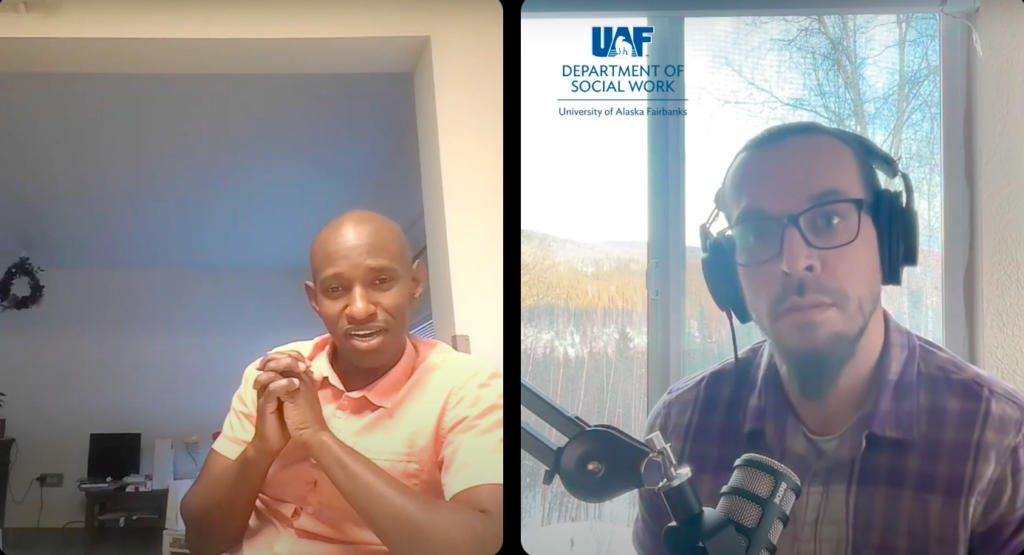
“I feel as if we are fighting a losing battle.”
The language portion of this video is what really touched me. It drew me closer to the conversations that were had throughout the video. Dr. Mbise becomes transparent and vulnerable in this podcast when he admits that he feels as if he “failed” in teaching his own children, his own Tribe language. And he admits that they will probably never learn it as well as he did, as oppose to his first language being his Tribe language, his children’s first language is Swahili. He acknowledges in the podcast that he feels as if his own Native language is being threatened by the globalization of Swahili and English.
“Find ways to preserve the languages you speak”
Towards the end of the podcast, a student named Lane joined in and asked Dr. Mbise a question about the Western culture basically taking over in terms of finding a nationally recognized language, and totally disregarding a culture’s one language. Which he replied to the question in a very meaningful way, to me.
“Language is the core of who you are. It is your primary identity. If you take away a person’s ability to speak their language, you are giving them a long-lasting impact of trauma. You’re not just changing words, you’re changing people’s identity.”
After he said this, I felt as if I had to replay the message once more. I have never thought of my language being the core of who I was. And I couldn’t agree more with what was spoken during this podcast. As he told his answer and his stories, I couldn’t imagine but picture myself as a person who loses their culture and language. Who would I be? Would I be affected by this?
Challenges & Lessons
“The governor would rather you identify as a whole country and not as your own identity with your tribe.”
Dr. Mbise mentions that one of his challenges as his own person, is the disagreement he has with the policies that his government currently share. These certain policies center Swahili as the primary and most important language in the whole of Africa. He explains in the podcast that no program that he knows of is currently being pushed by the government to preserve indigenous and native languages in his country.
“What kind of teacher are you?”
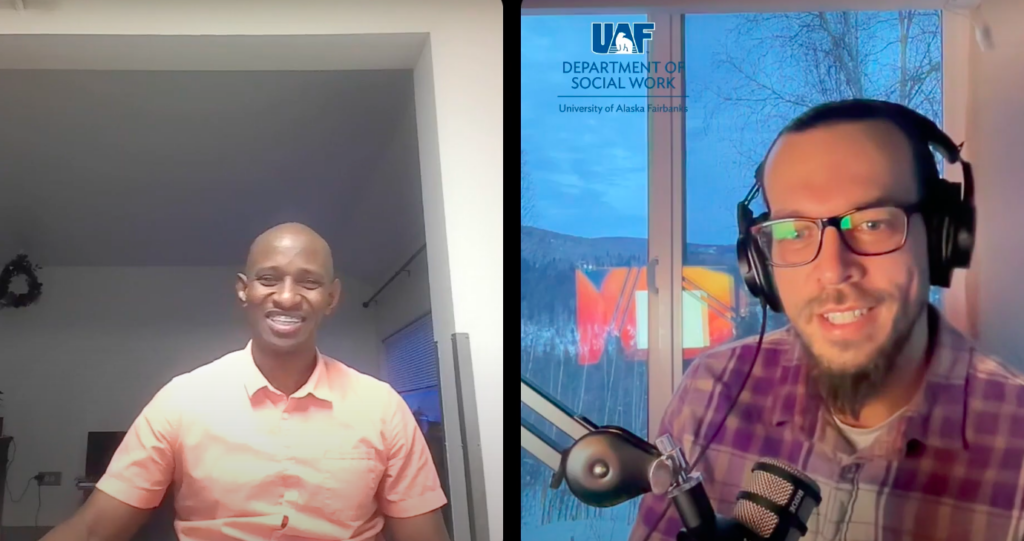
The last question Professor Stettler asked of Dr. Mbise was “What kind of teacher are you?” Which I found particularly interesting. Dr. Mbise went on to explain that he teaches students based on community engagement. He believes that learning in the real world is more beneficial to students in his class. Which I find very interesting.
“I believe learning is more meaningful when it is applied in real life, real world, problems. That is when we learn the most”
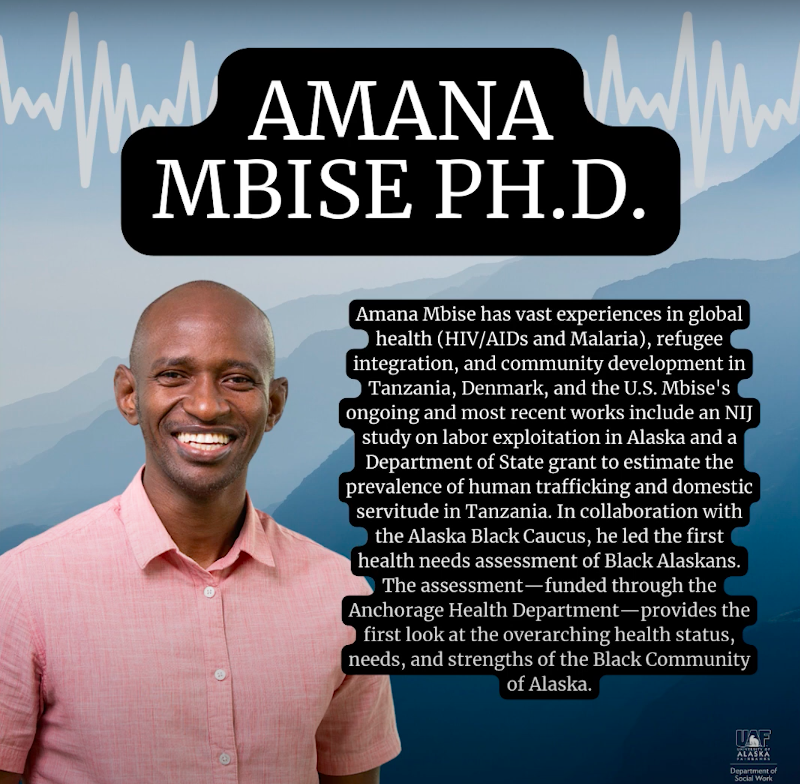
Comments
2 responses to “The Critical Social Worker”
This was an outstanding show. Dr. Mbise was a very knowledgeable guest, and he gave a lot of insight into the politics and the struggles that are going on on the other side of the world in Africa. He spoke on the loss of language and reclaiming tribal customs and traditions. His work with the Anchorage Black Caucus has been remarkable. My wife and I are a part of the caucus, and we enjoy the drive and influence Dr. Mbise has added to that union.
I think it’s easy to feel like we have failed the next generation. I remember being in the garage with my grandfather who was in the middle of doing a rebuild on a Suzuki Samurai that he had picked up on the cheap because it had an engine knock. Even today, I think of what he was doing as “Master Mechanic” level stuff. I found it amazing that he would even attempt it. It wasn’t his day job ( he was a dentist). But his father was a mechanic. He mentioned that he remembered his father working on an automatic transmission in their driveway as a kid, and his father wanted him to sit, watch, and learn. He didn’t, he was bored, and in the end, he never learned to do anything with automatic transmissions. Which, later in his life, he regretted.
A few years ago, I was on St. Lawrence Island. The project we were working on needed a few supplies, some of which we ordered from Nome, and expected them to be on the plane to the Island a day later. There were a few however, that we needed that day. Going down to “The Native Store” (the store that has a little bit of everything- for a price), I was able to find the course threaded screws we needed for the job. Sitting in the store were several people talking – sharing stories and gossip. Among that group, was a grandfather, and his grandson. The grandfather was trying to teach his grandson something about the migration of Murre birds, and when to harvest their eggs. His grandson wasn’t really paying attention. Instead, he was on his cellphone, watching Beyonce’s video, “All the single Ladies.” After a few more minutes, the grandson actually said, “This is boring. I’m not going to stay here anyway.”
I was embarrassed to be there, so I made my purchase and left. Since than, I have wondered how many lessons I was too distracted to learn from my grandfather. I wonder if that young man will be as regretful as I am at the opportunities missed.